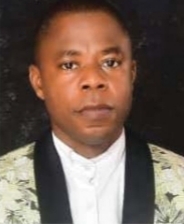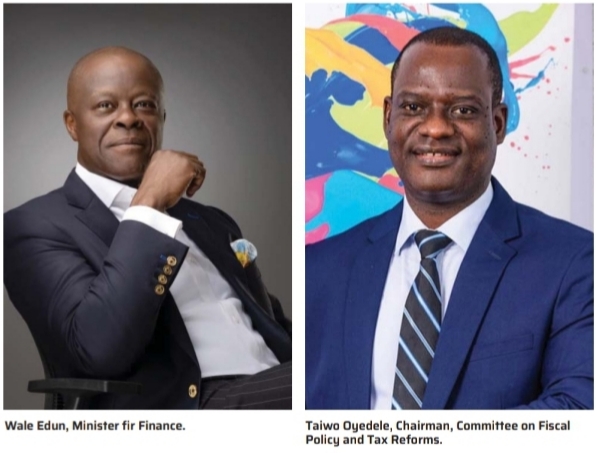
When the Federal Government of Nigeria announced in August 2025 that it had already surpassed its revenue target for the entire fiscal year, citizens might have expected a pause in new fiscal demands. Instead, they were told that from January 1, 2026, a new Tax Identification Number will be compulsory to open or operate any bank account. The measure, embedded in the 2025 Tax Act reforms, is presented as an instrument of modernisation and fairness. Yet to most Nigerians, it feels less like reform and more like a new chain fastened to an already exhausted population.
This frustration is sharpened by the suffocating proliferation of identity numbers that Nigerians are compelled to carry. The National Identity Number, the Bank Verification Number, the International Passport Number, the Permanent Voter Card Number, the Driver’s Licence Number, the SIM registration ID, and the National Health Insurance Number already bind citizens into multiple, overlapping databases. Instead of integrating these into a single, seamless system, the state multiplies them, compounding queues, costs, and inefficiencies. What troubles citizens is not the lack of numbers but the absence of benefits. The structure of Nigeria’s economy deepens the sense of injustice.
The National Bureau of Statistics reported in its 2023–2024 surveys that more than half of all jobs are in the informal sector. Millions remain unemployed or underemployed, surviving through daily hustles and cash transactions. For these citizens, banking access itself is a luxury, and compelling them to obtain a Tax ID risks exclusion, not inclusion. Rather than drawing the informal sector into prosperity, this reform may push it further to the margins. Proponents of the policy point out that Nigeria’s tax-to-GDP ratio remains one of the lowest in the world, around 7 to 8 percent, compared with the OECD average of 34 percent and African peers such as South Africa and Kenya, which record 20 percent or more.
The government is right to acknowledge that revenue must increase if the state is to function. But taxation is not an end in itself. In societies where the tax burden is heavy, citizens can point to reliable public services—steady electricity, functioning hospitals, safe roads, quality schools. In Nigeria, however, taxpayers pay like Europeans but live like exiles from modernity. This is most visible in daily ife, where Nigerians feel taxed at every turn. Value-added tax inflates the cost of every purchase, from food in supermarkets to sachet water.
Airtime and data carry levies that make communication expensive. Transport fares rise as fuel levies inflate the cost of petrol and diesel, with subsidy removals worsening the burden. Electricity tariffs climb even as the national grid collapses repeatedly, forcing families and businesses into private taxation through generators, inverters, and fuel. Every bank transaction attracts charges—stamp duties, electronic money transfer levies—while import duties raise the price of goods, and traders are compelled to pay market levies and local council dues. Even airline tickets and hospitality services are laden with multiple charges.

These indirect taxes are regressive, biting the poor harder than the rich. Against this backdrop, the government’s claim of exceeding its 2025 revenue target while still imposing a mandatory Tax ID is an insult to reason. On paper, the reform is meant to close loopholes, widen the net, and ensure fairness. In practice, it risks excluding the vulnerable, multiplying bureaucracy, and worsening mistrust. The very citizens who already save their meagre income in banks are those who will be compelled into another cycle of registration and fees, while the wealthy who own vast tracts of land, fleets of idle luxury cars, and herds of cattle roaming untaxed across public roads continue to escape the net. It is not the poor who evade taxes in Nigeria; it is the rich who hoard untaxed wealth in jewelry, estates, and offshore accounts.
The banking sector itself has yet to recover from the disruptions of the COVID-19 era. Queues remain endless, systems fragile, and influence often required to access simple services. Adding a new Tax ID requirement in 2026 will only congest banking halls further, recreating the chaos witnessed in 2023 when a currency redesign punished ordinary Nigerians for no discernible gain. The impression left is that each administration devises new ways to extract pain, not progress. The moral dimension of this crisis cannot be ignored. Tax is the duty of citizens in any functioning society, but duty without reciprocity is exploitation.
A government that demands more from its people without first sealing leakages, cutting waste, and demonstrating value in return is not reforming but plundering. Reform should mean integrating existing identification systems rather than multiplying them. It should mean protecting the unbanked rather than excluding them. It should mean broadening the tax net in ways that target idle wealth rather than wringing dry those who are already bleeding. Nigeria deserves better. Revenues collected must be transparently allocated and visibly invested in public goods.
When citizens see steady electricity, improved hospitals, functional universities, and safer roads, their willingness to pay will rise. Without this, any new tax scheme will be remembered not as a step toward modernization but as another layer of exploitation. If the Federal Government insists on demanding blood from those already bleeding, the people will bleed out trust, and without trust, no taxation system can endure.
• Rev. Fr. (Dr.) Okhueleigbe Osemhantie Amos is a priest of the Catholic Diocese of Uromi and a Lecturer at the Catholic Institute of West Africa, Port Harcourt, Nigeria.





